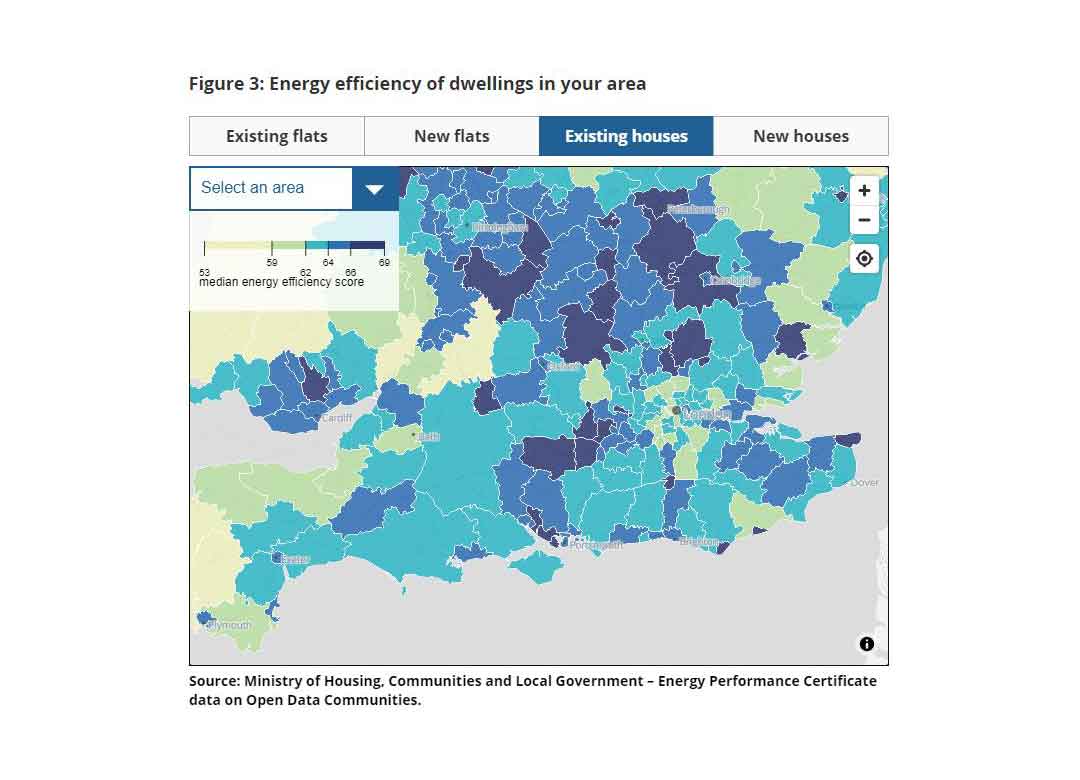What is an EPC and how Much Does It Cost
If you are planning to sell or rent out your home you will need an Energy Performance Certificate (EPC). Using our guide you can read on what is an EPC, when is required, how to get one and, of course, how much an EPC does cost?
An EPC or an Energy Performance Certificate has the role of proof of assessment for how energy efficient is your property. It includes information about how much energy your property uses and also includes recommendations on how to make the building more energy efficient and cheaper to run.
With an EPC, properties are getting ratings from A to G, where A is the most efficient and G is the worst. Is useful to know that if you are a landlord and your energy efficiency rating is below E, you are not going to be able to let it out to tenants.
This article will cover:
- What is an EPC?
- How much does an EPC cost?
- What is covered in the EPC cost?
- What does a Domestic Energy Assessor do?
- How long does an EPC last?
- What happens when an EPC expires?
- Are EPC Certificates a legal requirement?
- What other Costs are Involved with an EPC?
- Who pays for EPC Certificate?
- How do I get an EPC Certificate?
An Energy Performance Certificate (EPC) would cost you between £50 to £130. There are not set prices for an EPC and would depend what type of property is, how many bedrooms has and the location of the property. For example, an EPC for large house in West London is likely to cost more than getting an EPC for two bedroom flat in Bristol.
Normally, a Certificate would be requested by an estate agent and in some cases, they will offer to put you in contact with someone if your EPC is expired or you don’t have one. However, firstly, you should compare some quotes before you jump on their offer.
The cost of an EPC covers the inspection that is completed by an accredited Domestic Energy Assessor and the EPC itself. As we mentioned before, the Energy Performance Certificate will identify how energy efficient the property is, by using a scale from A to G (Very Efficient – Not Efficient). Also, a number from 1 – 100 will be assign to the property – a higher number means a more energy efficient building.
The average energy efficient rating for a property in England and Wales is band D. Below you can find the existing houses in South England energy efficient score map from ONS.

Need A Free Estimate?
- Fully qualified RICS professional surveyor
- Affordable, fast and thorough surveys
- Clear, precise and easy to understand report
An EPC cost includes the service provided by a DEA (Domestic Energy Assessor) to inspect, assess and write up your EPC. The inspection would take between 45 to 60 minutes while the assessor checks a number of health and safety items, takes dimensions throughout the building and identifies areas where the heat may be lost (such as windows, ceilings, floor, walls and more).
The property will be assess with the purpose of calculating how much will cost to power and heat the building. An EPC also identifies the amount you could potentially save if you improve the energy efficiency of your house.
The survey normally will cover an inspection of room heaters, boilers, fireplaces and heating controls, dwelling insulation, type of windows and building materials used and also will make a record of any low energy lighting and the type of fuel used to heat the property.
The requirement of EPC was introduced in 2007 and are valid for 10 years. Is recommended that if you are carrying out any home improvements which are related to your windows, heating sources or insulation to look for a new EPC.
Also, is illegal to offer for tenancy any house with a F or G rating. You can check if your property has an EPC at EPC register (for England and Wales).
When an EPC expires, it is no longer valid and cannot be used for any purpose. If you are selling or renting out a building and the EPC has expired, you will need to obtain a new one before you can legally do so.
In short, if your EPC expired you dont need a new one until you are selling or renting out.
You may also be required to have a new EPC if you make significant changes to the building that affect its energy efficiency, such as adding insulation or installing a new heating system.
Energy Performance Certificates (EPCs) are legal documents that provide information on the energy efficiency of a building. As per GOV.UK: “You can be fined if you do not get an EPC when you need one.”
The person selling the house, the landlord, or the letting agent must show you the EPC if you’re buying or renting.
Along with the cost of the Certificate itself and the service provided by the Domestic Energy Assessor, there may be the added cost of any work that may need to be carried out to improve the energy efficiency on your property.
The EPC can act as a useful guide to help you focus on the main areas where improvements can be made to reduce the household running costs. Improving the EPC on your property and making your home more energy efficient could also increase its value.
The cost of an Energy Performance Certificate (EPC) is usually paid by the owner of the building. In some cases, the seller or landlord may choose to pay for the EPC as part of the process of selling or renting out the building. In other cases, the buyer or tenant may be responsible for paying for the EPC.
The specific arrangements for paying for an EPC will depend on the terms of the sale or rental agreement and may be negotiated between the parties involved. It is important to clearly define who will be responsible for paying for the EPC in any agreement relating to the sale or rental of a building.
In some cases, it may be possible to obtain financial assistance to cover the cost of an EPC, especially if the building is in need of significant energy efficiency improvements. It is worth exploring whether there are any local or national grants or subsidies available to help offset the cost of an EPC.
An EPC must be completed by an accredited domestic energy assessor, which you can find in your area through the government’s official EPC register.
If you are working with an estate agent or letting agent to sell or rent your home, it is their responsibility to make sure that there is a valid EPC in place for the property.
Written by Danil P.
29th Feb 2021 (Last updated on 26th Dec 2022)
5 minute read





